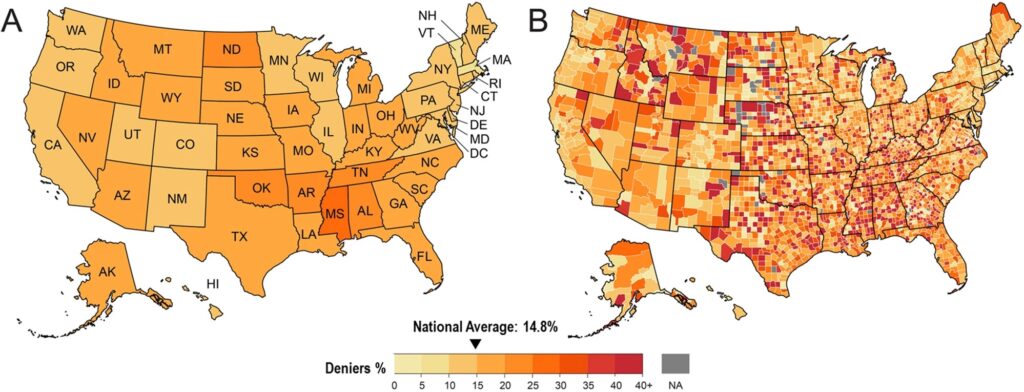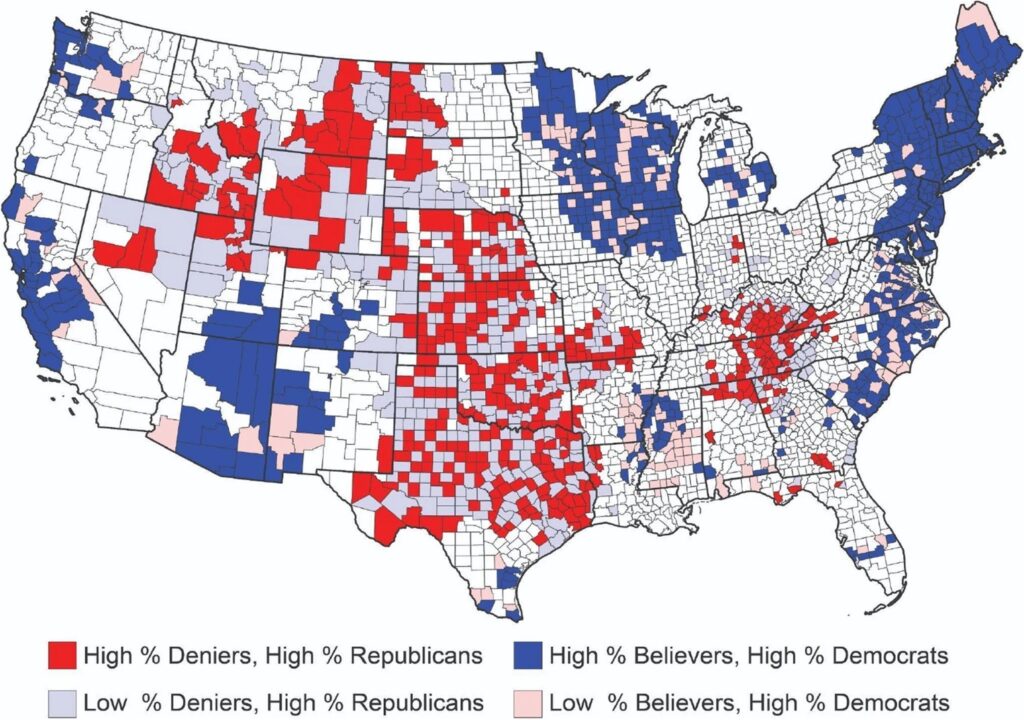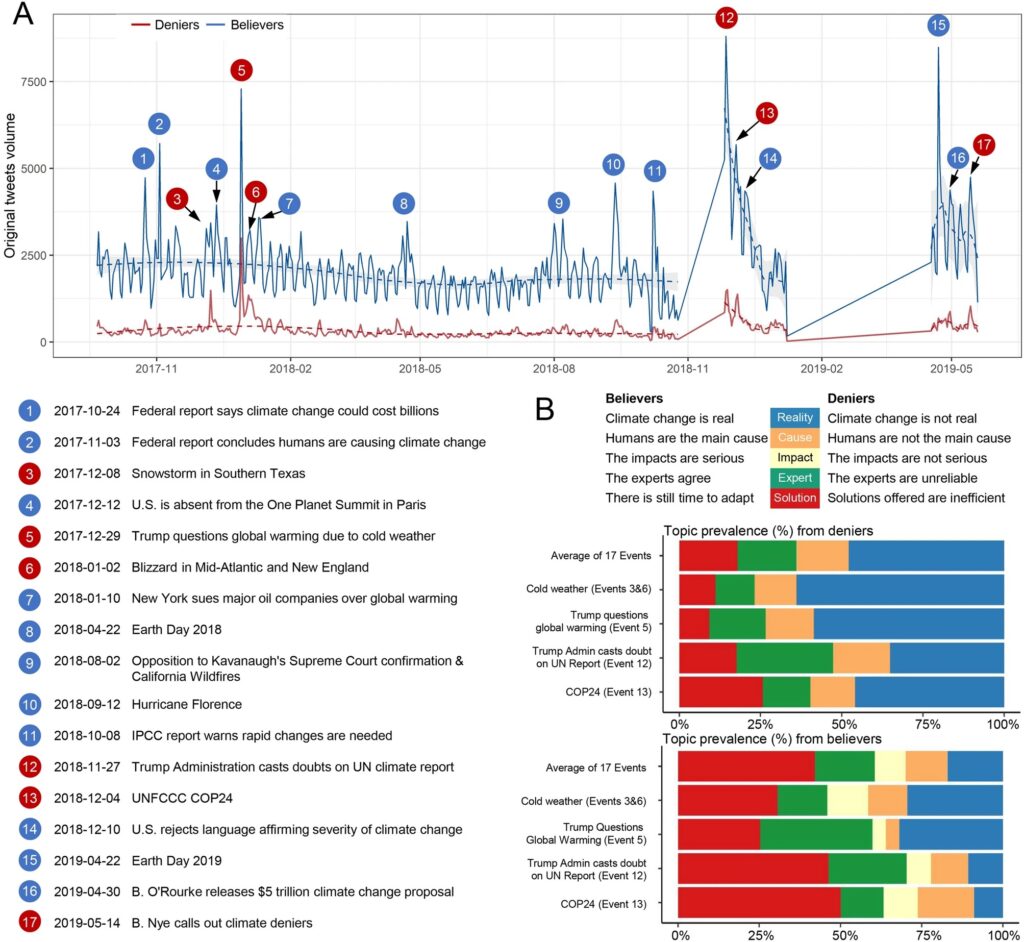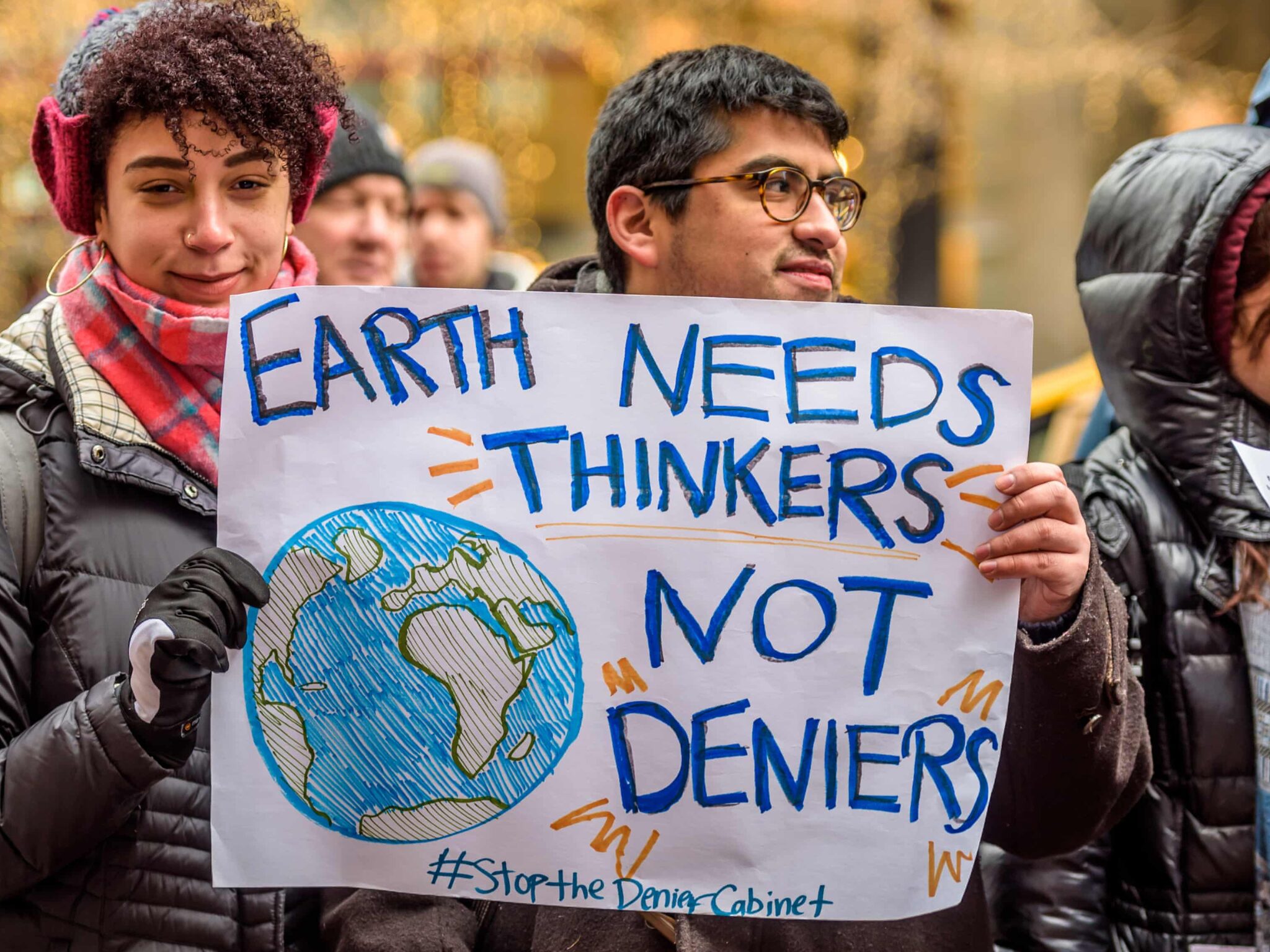Ahead of 2024 Elections, 15% of Americans Don’t Believe Climate Change is Real
5 Mins Read
Nearly 15% of Americans don’t think climate change is real, with denialism highest in the central and southern US and among Republicans, according to a new study.
2024 is the year of climate elections, and the polarising conversation about global warming is heating up as we get closer to the US presidential vote in November. But a new study by the University of Michigan has shed light on a troubling statistic: 14.8% of Americans are climate change deniers.
This is higher in some areas than others – people in the southern and central US are more likely to believe climate change isn’t real, as are Republican voters. The researchers analysed over 7.4 million tweets from about 1.3 million people on X/Twitter between 2017 and 2019, geocoding the posts as ‘for’ or ‘against’ climate change using a large language model developed by OpenAI (the company behind ChatGPT).
“Over half of the tweets we looked at simply denied that climate change was real, that it was a hoax,” Joshua Newell, study co-author and environment and sustainability professor at the University of Michigan, told the Guardian. “It wasn’t surprising but it was disappointing, I would hope that more and more Americans would believe in climate change and the importance of addressing it.”
Geographical and political links with climate denial in the US

The study found that there is higher belief in climate change along both US coasts and in New England, and denial was most prevalent in Oklahoma, Mississippi, Alabama and North Dakota (all Republican-majority states), where more than 20% of residents don’t think global warming is real.
But climate denial varies substantially within different states too, including those with a Democrat skew. For example, while 12% of Californians don’t believe in climate change, that figure rises sharply in Shasta County, where 52% of people are deniers. Similarly, in Texas, the overall denial rate is 21%, but the intra-state figures range from 13% in Travis County to 67% in Hockley County.
The researchers further analysed the geographical relationship between climate denial and political affiliations. Clusters of deniers coinciding with high Republican votership were found in the interior west, central and Appalachian regions (including states like Idaho, Nebraska, Kansas, Texas, West Virginia and Tennessee). These regions also tend to have high rates of carbon dependency on the economy, low Covid-19 vaccination rates, and large rural populations.
On the other hand, the link between climate change believers and a Demographic voter base was most prevalent along the Pacific coast, the New England region, the Great Lakes and the southwest, alongside regions near metropolitan areas and technological hubs. This includes states such as California, Washington, Massachusetts, Arizona, Illinois and New York.

Climate misinformation has extended to alternative protein
As Newell highlighted, the study’s results come as little surprise, but are nevertheless alarming. The research chimes with a recent climate opinion poll carried out by Yale University, which suggests that 16% of Americans – just under 50 million people – don’t believe in climate change. In November, another social-media-centric study by non-profit the Changing Markets Foundation found that 7% of the 285 million posts covered denied climate change, attacking it as a hoax perpetrated by ‘vegan extremists’.
Misinformation about the climate crisis is rampant in the US – and there has been a particular focus lately as legislators have magnified their focus on hoping to ban cultivated meat. Lawmakers in Florida, Alabama, Texas, Arizona, Nebraska, Tennessee, Wisconsin and even at the federal level have attempted to introduce some form of restriction on these foods. The Alabama Senate, in fact, passed a bill to ban cultivated meat earlier this month, followed by the Arizona House of Representatives doing the same this week (both bills will now undergo deliberation in the other respective chambers).
The backlash against cultivated meat has come with the argument that these novel proteins hurt farmers – though really, all these bans do is protect the incomes of big corporations. Livestock farmers, which receive 800 times more public funding than the alternative protein sector in the US, don’t face a threat from cultivated meat as much as they do from climate change – but that is a fact missed by many Americans. A poll by the Washington Post and the University of Maryland last year found that 74% of Americans don’t think eating meat is linked to the climate crisis, despite scientific research proving otherwise.
A second term for Trump means disaster for the climate

The University of Michigan study looked into the most influential climate change figures on Twitter, finding that former US president and current Republican candidate Donald Trump had the biggest influence among deniers on the social media platform. His tweets rejecting the 2018 IPCC report released at COP24, and denying climate change due to a a cold snap in Texas in December 2017 were among the most engaged social media posts for deniers.
“Public figures such as Trump are highly influential when they use these events to trigger disbelief in climate change among social media users,” said Newell. Referring to Trump’s Twitter ban after the January 6 Capitol attack, he added: “There is proper action by the social media companies to monitor disinformation and to act accordingly. These very powerful social media companies should consider similar strategies for misinformation regarding climate change.”
The Changing Markets Foundation study also revealed that Donald Trump Jr was among the most influential misinformation spreaders around climate change and alternative proteins. But his father’s reach and impact are much more dangerous. His last term saw him toll back nearly 100 climate regulations, including taking the US out of the 2015 Paris Agreement. Experts have previously warned that a re-election would basically mean “game over” for the climate fight.
The problem is – it isn’t going to get any better if Trump does take office (at the time of writing, he is marginally leading Joe Biden in the polls). He is expected to take more extreme measures this time around, including propelling up fossil fuel production (despite the resolution at COP28 to transition away from these energy sources, which are the top contributors to climate change), casting away mainstream climate scientists, and overturning emission reduction regulations.
“Trump will undo everything Biden has done, he will move more quickly and go further than he did before,” Myron Ebell, head of the Environmental Protection Agency transition team for Trump’s first term, told the Guardian. “He will act much more expeditiously to impose his agenda.”
November 5 is approaching. It’s the year of the climate election. What side of history will Americans end up at?




